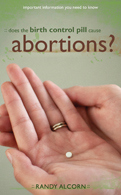 I’ve got some questions related to the data presented in your booklet regarding the different degrees of thickness of the endometrium. Also, doesn’t breastfeeding work the same as the pill in preventing ovulation and therefore it doesn’t produce a thick endometrium?
I’ve got some questions related to the data presented in your booklet regarding the different degrees of thickness of the endometrium. Also, doesn’t breastfeeding work the same as the pill in preventing ovulation and therefore it doesn’t produce a thick endometrium?
At the top of page 19 you quote, as evidence of the importance of endometrial thickness, a study showing that it’s a good indication of pregnancy, that thicknesses less than 7mm never were sustaining pregnancies. On page 20 you use the number 5-13mm for sustained pregnancy, and 1.1mm for average pill users, “who clearly aren’t pregnant at the time. While I was reading your condensation of the booklet with my fiancée, I noticed that you mentioned that endometriums of pill users were “up to” (i.e. a maximum of) 58% thinner than non-pill-users. That means that, based on the 1.1mm number referred to earlier, the average thickness of a non-pill-user is 2.6mm. This is far less than the 5 or 7mm required for pregnancy. How do you reconcile these numbers? According to the research you quote, no one should ever get pregnant. (I speculate that the endometrium thickens for pregnancy in non-pill users and pill users alike, since clearly neither sort of endometrium is normally thick enough to sustain pregnancy without some change.)
Secondly: the comparison to breast-feeding which you dismiss on page 63. I’ve been told the pill makes your body think it’s pregnant, so it isn’t supposed to ovulate and doesn’t have a thick endometrium (because the endometrium would only accumulate if the body expected to have a period). It really “isn’t” fundamentally different than the effect of nursing, in which the body isn’t supposed to ovulate and thus doesn’t have a thick endometrium. However, escape ovulations happen while breastfeeding just like they do on the pill: witness the occasionally tight spacing of children in the days gone by when breastfeeding was the only option. Similarly, it takes several months for a woman’s body to readjust after stopping breastfeeding, just like it takes several months for it to readjust after stopping the pill. Hmmm, might I have phrased my second sentence in this paragraph “the pill makes your body think it’s breastfeeding ...”
Please re-read the pamphlet’s dismissal of that particular objection and see if you agree that it’s pretty shaky. And please tell me if you have a better distinction between ‘inactive’ and ‘atrophic’ which have precisely the same meaning (“wasting away” OR “arrested development” says Webster’s), as well as if you’ve read the pill is more or less likely than breastfeeding to discourage ovulation (I’ve thought it was more).
Incidentally, the objection of this doctor matches up closely with what my fiancée’s doctor told her at her check-up. My fiancée very specifically raised the question of the pill producing a more hostile environment (artificially vs. naturally) for the kid, and her doctor said that that’s absurd; the pill only tells your body to do what it normally does when it’s one day pregnant (e.g. not ovulate in most circumstances).
I know one argument against this point (that the pill only makes the body perform a natural function at an abnormal time) could be that messing with your ovaries with chemicals isn’t how God intended it. However, it seems like (if what the pill “truly” does is replicate pregnancy, or breastfeeding...) this becomes a gray question (like whether or not to mess with God’s natural processes by using e.g. condoms or Advil or surgery) rather than a black and white question (like whether or not to kill kids).
By the way, we’re learning NFP and will likely use that in lieu of the pill. Though I needed your good long pamphlet for the explanation, the argument as compiled by Dr. Larimore is the most compelling to my sort of mind. Thanks for including that on your site.
As you well know, there are a lot of varying opinions out there, and strength of conviction has no required correlation with truth or authority. I look forward to hearing documented truth from a knowledgeable authority.
 Your first question is in regard to the data referred to on pages 19 and 20 of the book, Does the Birth Control Pill Cause Abortion. The data is presented simply to demonstrate that research has determined that endometrial thickness is a factor in sustained pregnancy. The fact that the variables are different (7mm, 5-13mm, 1.1mm, etc.) is not a contradiction or inconsistency on the part of Randy Alcorn; it is simply a reflection of the available data. Mr. Alcorn chose to present facts from many studies, rather than to rely on only one.
Your first question is in regard to the data referred to on pages 19 and 20 of the book, Does the Birth Control Pill Cause Abortion. The data is presented simply to demonstrate that research has determined that endometrial thickness is a factor in sustained pregnancy. The fact that the variables are different (7mm, 5-13mm, 1.1mm, etc.) is not a contradiction or inconsistency on the part of Randy Alcorn; it is simply a reflection of the available data. Mr. Alcorn chose to present facts from many studies, rather than to rely on only one.
So why is endometrial thickness presented as varying to such differing degrees? The thickness of the endometrium is not constant throughout the uterus; even in a non-pill user it may be 6mm in one area, and 10 or 15mm in an adjoining area. What is relevant is that the pill produces an overall thinning effect that decidualizes the endometrium to the extent that normative values are not present in most or all of the lining.
One might liken it to an unprepared field, filled with stones and sand and the occasional pocket of fertile soil. A single seed is tossed out into the field with the anticipation of growth, but the farmer is more often disillusioned by the great lack of productivity. The “odds” are substantially against the seed finding the rare pocket of fertile soil.
Another way to explain this is to say that the number of layers of tissue may vary in such a way that many parts of the lining are covered with 3-5 layers, and a much smaller portion might have 7 or 8 layers. The mm designation represents layers of tissue, one upon another. The use of the pill prevents some or all of the layers from developing. For a more detailed understanding of the phenomenon of variable layering, I suggest you research an article titled “Progesterone Implants enhance SIV transmission and early Virus Load,” Nature Medicine, Oct. 1996, vol. 2, no. 10.
Second, you raise the issue of breastfeeding as it is discussed on page 63. You give a simplistic explanation that the pill makes a woman’s “body think it’s pregnant, so it isn’t supposed to ovulate and doesn’t have a thick endometrium.” You go on to assert that this “isn’t fundamentally different than the effect of nursing, in which the body isn’t supposed to ovulate and thus doesn’t have a thick endometrium.... Hmmm, might I have phrased my second sentence in this paragraph, ‘the pill makes your body think it’s breastfeeding ...’”
No. As Dr. Hayes points out, breastfeeding generally inhibits ovulation, while the pill acts both to inhibit ovulation, as well as to produce an atrophic endometrium. In other words, since ovulations are not entirely suppressed, a second intended modality is not to prevent pregnancy, but to end it. It is at that level of intention that one must focus. Breastfeeding does not have a primary purpose of ending a pregnancy, but pill use has that as an intended purpose if inhibition of ovulation fails. The pharmacology is clear, and women have a right to know that the pill not only may inhibit ovulation, but it may also kill an unborn child through directed damaging (“wasting” and “inactive” are not entirely the same) effects to the lining of the uterus.
Next, you state, “My fiancée very specifically raised the question of the pill producing a more hostile environment (artificially vs. naturally) for the kid, and her doctor said that that’s absurd; the pill only tells your body to do what it normally does when it’s one day pregnant (e.g. not ovulate in most circumstances).”
With due respect to your fiancée’s physician, he relies on the sort of simplistic explanation that doctors are trained to offer patients. I suggested you research an article earlier in this email, and I restate that suggestion here. Exogenous hormonal treatments are not precisely “natural” in the affect they have on the body.
You raise the interesting question of “messing” with the human body “as God intended it.” This is perhaps one of the most important ethical questions in reproductive technology; how far may a couple go to “manage” their reproductive capacities before crossing a Divine boundary. Certainly procreation is a God-given function, so it seems quite clear that disease issues that damage the body’s ability to produce offspring should be addressed in ethical ways that restore healthy function as much as possible.
But what of managing reproductive capacities in the opposite direction? Beyond the data as to how hormonal products impact the body, there is the legitimate question, “Has God given man the right to reject offspring to the degree we see such decisions being made with the pill and other products?”
The ethical question that you raise is one that has troubled humankind throughout human history. People of integrity have disagreed with each other’s point of view, certainly suggesting that it should be a subject for serious reflection on the part of all who believe in God. It seems you and your fiancée are doing your part to consider to what degree God would have you exert control over that aspect of your lives together. We may not have a definitive answer as to how God will operate with you to form your family, but we can say that the intentional nature of the pill—in that an intended affect is to starve out a newly created child—makes such a product a doubtfully divine instrument.
For more information on this subject, see Randy Alcorn’s book Does the Birth Control Pill Cause Abortions?



